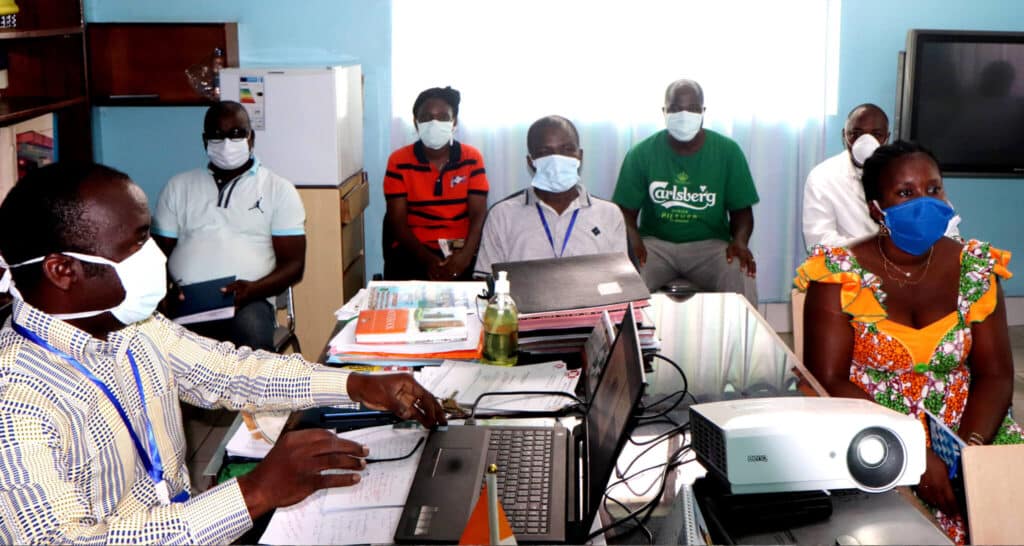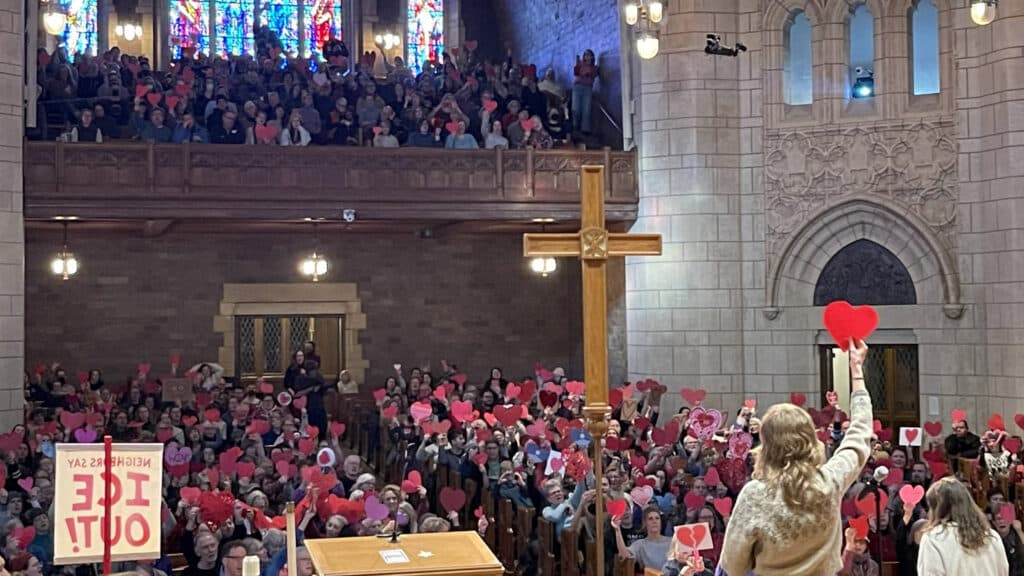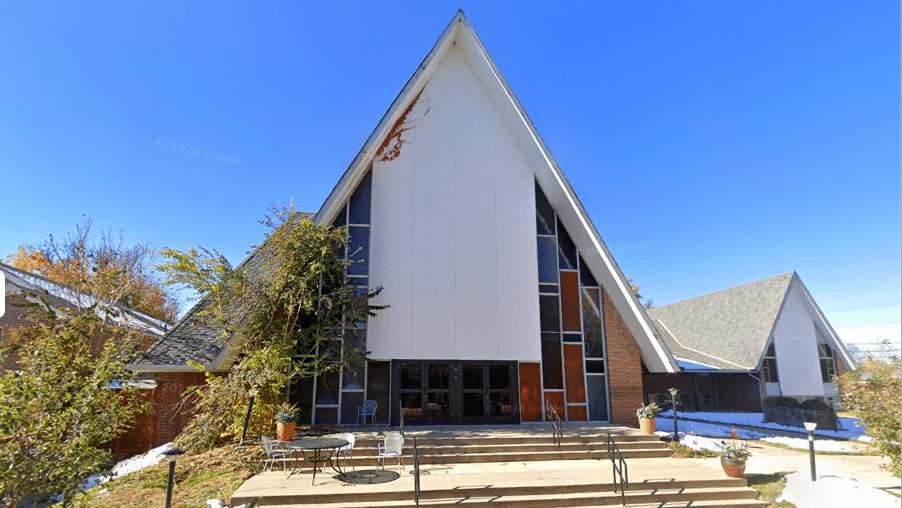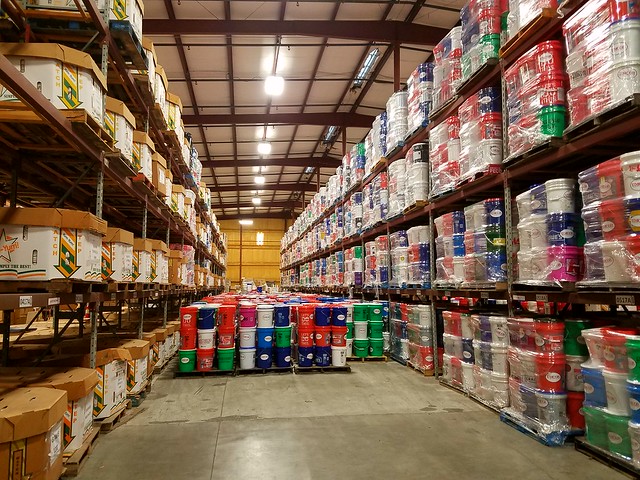By Christie R. House
May 19, 2020 | ATLANTA
Global Ministries’ response to the coronavirus is reaching those in need internationally and in the United States. In addition to grants provided through the Sheltering in Love UMCOR COVID-19 Response funds, solidarity grants are being made from UMCOR, Global Health and other program units of the UMC mission agency. At this time, 32 solidarity grants have been dispersed, totaling about $346,000.
International solidarity grants for health boards: training
Twelve solidarity grants, each just under $10,000, were dispersed to United Methodist health boards in Africa to assist with training related to COVID-19 prevention and control in their regions. In addition, UMCOR and Global Health staff conducted online training workshops for key leaders and health coordinators in Africa and the Philippines, laying the groundwork for them to train other trainers, passing the knowledge and guidance along their networks to reach people in various communities.
Led by Megan Klingler, MPH, RN, of Global Ministries’ Global Health unit, training for health board members and disaster management offices provided guidance for physical distancing, respiratory hygiene and handwashing, as well as how to properly use a mask for personal and community protection. Training for United Methodist health workers was more detailed and related to working directly with patients. The team offered seven different kinds of training.
“We decided to start with education first,” Klingler explained. “That is our greatest power and contribution. To provide ways for health workers to safely treat and care for COVID-19 patients offers the best opportunity for keeping people safe. And we need clergy – key leaders in their communities – to remain safe and teach their congregations and community members how to do the same.” The power to break the chain of transmission is in the hands of community members.
Some of the health boards may decide to invest portions of their grants in personal protection equipment or other medical needs, depending on their health facilities’ resources and situations. Some have provided handwashing stations in health facilities and other places people gather.
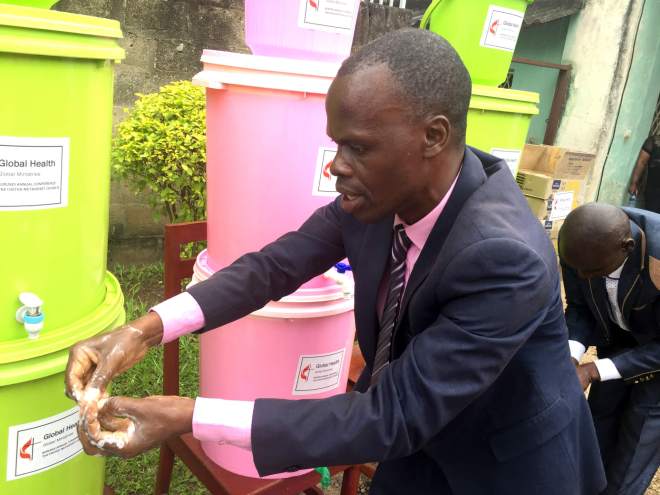
In addition to COVID-19, communities in Africa are also seeing a resurgence in malaria cases this year. Tatenda Mujeni, Global Health’s program manager for Imagine No Malaria, noted that program managers for Imagine No Malaria and Mother, Newborn and Child Health were included in the trainings. “To make sure we do not lose ground in the fight against malaria and other preventable childhood diseases, we are addressing this pandemic in the context of the health and welfare of the community as a whole,” Mujeni said. “We focus on everything.”
Participants in the trainings agreed that disseminating critical information about infection control and prevention was timely and important, and in addition, that the online connection bringing health experts together across international boundaries gave comfort and encouragement to many who felt isolated in their efforts.
Klinger indicated that many questions were raised by the attendees, notably from pastors. This provided an opportunity to debunk some of the information circulating in the media about the virus, current treatment methods and whether some populations are more vulnerable to the virus than others.
In a video conversation with Global Ministries’ general secretary, Thomas Kemper, Dr. Godfrey Ogbu, the health board coordinator for the Nigeria United Methodist Church and the chief medical officer at Jalingo United Methodist Hospital, mentioned that the printed posters and information on virus prevention measures the United Methodist Health Board disseminated using its solidary grant was the only such information being distributed publicly in Nigeria at that time. The health board conducted community trainings and reached some traditional healers and leaders. Trainers work with 100 pastors in five sessions to accommodate Nigeria’s social distancing guidelines, which allow no more than 20 people to gather at a time.
Solidarity grants were distributed to health boards in East Angola, Burundi, Côte d’Ivoire, the four episcopal areas of the Democratic Republic of the Congo, Liberia, Nigeria, Sierra Leone, Zambia and Zimbabwe. In addition, health boards or partner agencies in Mozambique, West Angola, Ethiopia and El Salvador have received invitations to apply for these grants.
U.S. UMCOR solidarity grants: provision
Seven grants approved through the UMCOR Sustainable Development and Global Migration offices totaling nearly $70,000 will serve vulnerable populations in the United States.
Six solidarity grants assist Native American leaders as they undertake appropriate emergency steps to meet the food security and water needs of their communities. COVID-19 shelter in place orders disproportionately affect Native American populations across the United States, as they encounter lay-offs, difficulties accessing federal assistance and gaps in civil and health care infrastructure.
The Oklahoma Indian Missionary Conference, with congregations and constituents representing more than 35 Native nations across Oklahoma, received a grant to increase food availability and affordability. The conference will restock three community food pantries and package and deliver basic food relief boxes to 430 families.
Two grants will assist Navajo communities in New Mexico and Arizona with water access. Demand for water has increased to meet handwashing, hygiene, and cleaning guidelines related to the coronavirus. Navajo Bonaventure Indian School received a grant to increase water storage barrels for 125 families. The DigDeep Navajo Water Project will use a grant to increase water truck deliveries to elder households, since some Navajo homes have no running water.
A third water, sanitation and hygiene grant implemented by the Midwest Mission Distribution Center, an UMCOR relief network partner, will supply hand sanitizer to households and community centers that lack indoor plumbing on the Navajo and White Mountain Apache reservations in Arizona.
A grant to the Navajo UMC New Beginnings Ministry Family Crisis Center in New Mexico will provide household assistance to crisis center residents. Shelter residents need groceries, pantry and personal care items and gasoline. The grant will also support operating costs for the domestic violence hotline.
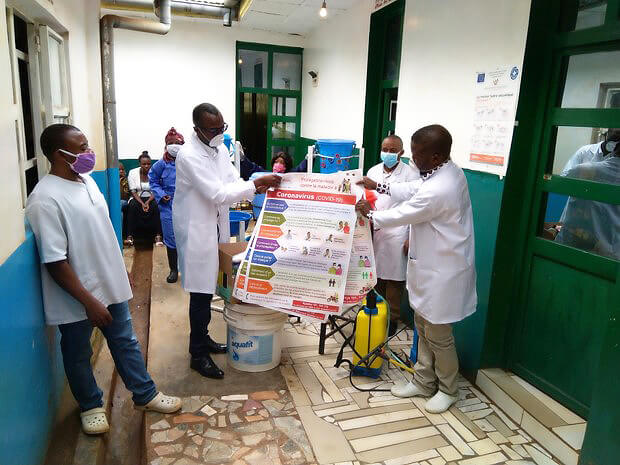
Four Corners Native American Ministry, New Mexico Annual Conference, prepares and delivers boxed meals to shift workers with service agencies in the greater Shiprock area. Health care workers, emergency responders, law enforcement, and fire department workers continue to report for duty, but the restaurants and institutional cafeterias around them have closed. This grant supports the Four Corners initiative to support frontline COVID-19 workers.
A Global Migration solidarity grant for El Refugio Ministry in Lumpkin, Georgia, will provide emergency assistance for families seeking to support loved ones in immigration detention. El Refugio Ministry can no longer make visits to the Stewart Detention Center, but it still serves immigrant families. The grant will help detained immigrants to make phone calls to loved ones, pay for hotel rooms for families arriving to pick up members who are released or provide bus tickets for people whose relatives are unable to reach them.
UMCOR program staff members continue to reach out to partners across the U.S. to determine how best to support them as they serve their communities. Additional grants may be released soon.
Asia Program Regional Office grants: preparation
Global Ministries’ Asia Program Regional Office in Seoul, South Korea, approved 13 grants totaling $156,000 for mission programs meeting the challenges of COVID-19 response in various ways. Mission initiatives and partner service agencies in Cambodia, Laos, Mongolia and Vietnam are addressing health and food security concerns with hygiene supplies and food packets. Funds for masks were provided for United Methodist partners in the Philippines, South Korea and Japan. Partners in Cambodia and Indonesia requested supplies of vitamins.
Christie R. House is a consultant for editing and writing with Global Ministries.
